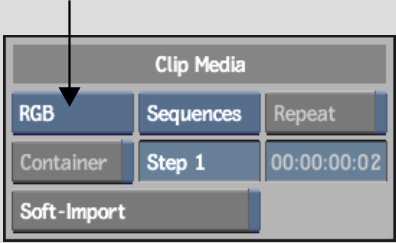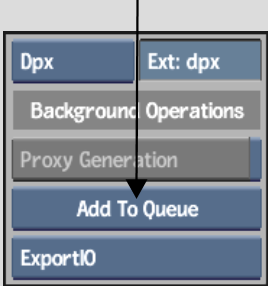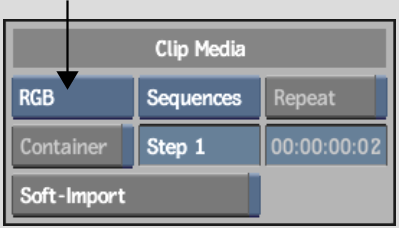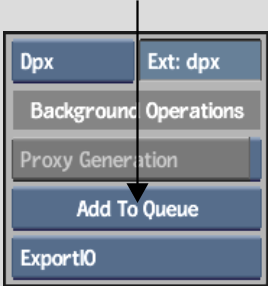Show in Contents

Add to Favorites

Home: Inferno

Importing OpenEXR Files

Importing Media Files

Importing Adobe Photoshop Files

Importing RGBA Files
When you import an RGBA file into Inferno,
you can import the RGB image and the alpha channel as separate clips.
The alpha channel can be imported as is or inverted. You can also
import the RGB image and alpha channel and place them in a matte
container.
To
import or soft-import an RGBA file:
- From the Library menu, click Import Image
and select a destination reel.
- In
the Import Image menu, browse to the directory containing the media
with the alpha channel and select the files.
- From
the Channels box, select one of the following:
- RGBA
to import the image and the alpha as is, as separate clips.
- RGBA
Inverted to import the image and the alpha inverted, as separate
clips.
- Enable
Soft-Import if you want to import a reference to the media, but
you do not want to store the media on the local storage.
- Optional:
Select a queueing option from the Add To Queue box.
If you soft-import clips you can generate proxies
in the background. This gives you the ability to assemble the timeline
while proxy generation is taking place. See
Importing and Soft-Importing in the Background.
- Click
Load.
The RGB
image and the alpha channel are loaded separately to the desktop.
To
import or soft-import an RGBA file into a matte container:
- From the Library menu, click Import Image
and select a destination reel.
- Browse
to the directory containing the media with the alpha channel and
select the files.
- From
the Channels box, select RGBA or RGBA Inverted.
- Enable
Container to create a matte container.
- Enable
Soft-Import if you want to import a reference to the media, but
you do not want to store the media on the local storage.
- Optional:
Select a queueing option from the Add To Queue box.
If you soft-import clips you can generate proxies
in the background. This gives you the ability to assemble the timeline
while proxy generation is taking place. See
Importing and Soft-Importing in the Background.
- Click
Load.
The RGB image and the alpha channel are loaded
into the clip library and are merged into a single clip inside a
matte container.
- In
the clip library, select the clip and click Load.
The file is loaded to the clip library and the
words Matte Container are appended to the end of the filename.











